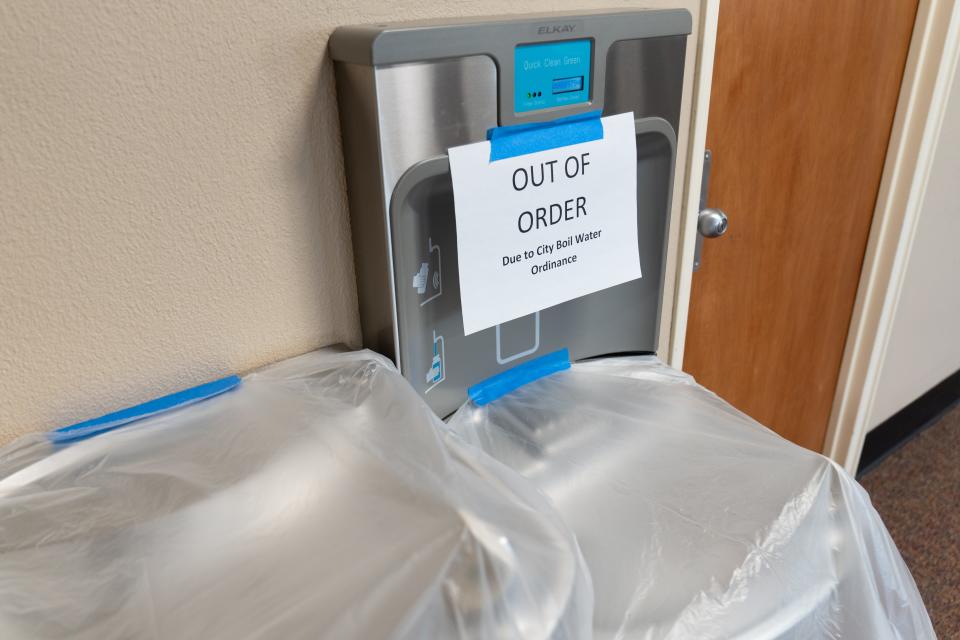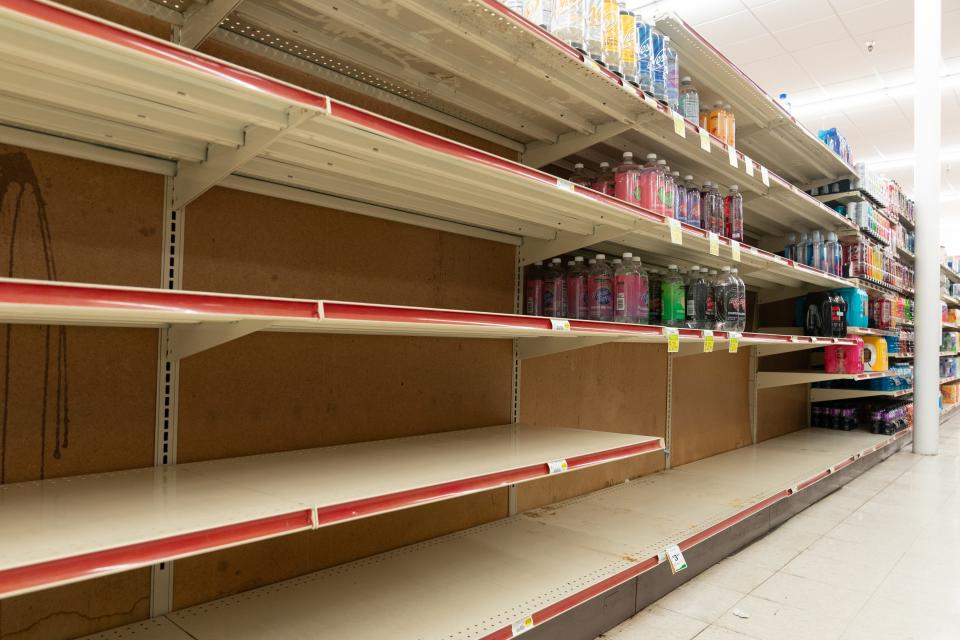How costly will the boil water advisory be for Topekans? Here's what we know
Topekans will see only a trickle of additional costs, if any, due to the problem that forced the city last week to declare a boil water advisory, city officials say.
The city, which uses about 20 million gallons of water on a normal day, was able to flush the entire 60 million gallons involved through its distribution system in about three days, co-interim city communications director Rosie Nichols told The Capital-Journal Friday.
"Regular water use activities have helped flush the distribution system, and many customers may not see an increase in their water bill," Nichols said.
Topeka city staff are still working to assess the total financial impact of the circumstances involved and don't have a dollar amount at this time, she said.

What triggered the boil water advisory?
The Kansas Department of Health and Environment issued the boil water advisory Jan. 14 after a break in a chlorine gas pipe caused chlorine residual levels at the city's water treatment plant to not meet the required minimum standard, putting the system at risk for bacterial contamination.
The break temporarily left the city's tap water unfit for drinking, although residents were encouraged to continue to use it to shower, do laundry or wash dishes.
The city quickly fixed the break and asked water service customers to "flush" their systems by running their taps.
Councilman said people asked, 'Who's going to pay for this?'
Councilman Marcus D.L. Miller said at this past week's city council meeting that some constituents, concerned that flushing their systems would increase their water bills, were asking, "Who's going to pay for this?"
City utilities director Sylvia Davis replied, "The water volume that we're asking people to use in their homes — can you run your faucet for five to 10 minutes, 15 minutes at the max? — when we do that for our highest-rated customers, those folks who pay the highest water rates, you're talking about 20 to 25 cents."
Adopting a practice of giving credits to reimburse customers for flushing out their systems "would end up costing us far more to generate those credits and do that work on the backend," Davis said.
"We're really not gearing up to offer some sort of assistance like that because we feel like the cost is negligible, although I hate saying that because I don't want anybody to ever think that we think that even 25 cents is just chump change, right?" she said. "Every penny matters to people."

How much does it cost the average customer to flush?
Ten to 15 minutes of flushing a water line costs approximately 25 cents on the water bill of an average residential user, Nichols confirmed Friday for The Capital-Journal.
"This flushing includes everyday water use activities such as taking a shower, doing laundry or dishes, or using the toilet," she said. "If customers continue to flush with those everyday activities, they likely aren't incurring additional costs."
Nichols said additional flushing guidance could be found here.
Spokeswoman: Officials realize people were inconvenienced
Because of the boil water advisory, Nichols said, "We wanted to make sure customers were being intentional about water use, rather than avoiding it, to ensure those 60 million gallons made their way through the system, as normal."
Topeka city officials understand the inconvenience and cost the boil water advisory has brought for residents and businesses, Nichols said.
"Twenty-five cents can make a difference to every customer, but it is important to remember that the twenty-five cents associated with flushing water lines is what customers are paying for their safety," she said. "While this has been an inconvenience, customers have continued to have access to water and to ensure that water is safe to consume, we encourage that flushing."
When was the advisory lifted?
KDHE rescinded the boil water advisory on Thursday.
The city appreciates citizens' willingness to assist with the flushing process, Nichols said.
The advisory was lifted more quickly than expected because of the hard work of city staff members, the city's partnership with KDHE and the community's help with flushing water lines, she said.
"We'd like to thank the community for their patience and recognize the great work of city utilities staff," Nichols said.
Washburn University incurred costs because of advisory
Washburn University incurred an unspecified amount in costs as a result of the advisory, which were mentioned in an email sent Thursday to faculty, staff and students on behalf of interim Washburn facilities director Eric Moss.
The university found itself needing to flush water fountains and replace water filters in refrigerators and water fountains, the email said.
Contact Tim Hrenchir at threnchir@gannett.com or 785-213-5934.
This article originally appeared on Topeka Capital-Journal: How costly was Topeka's boil water advisory? Here's what we know

